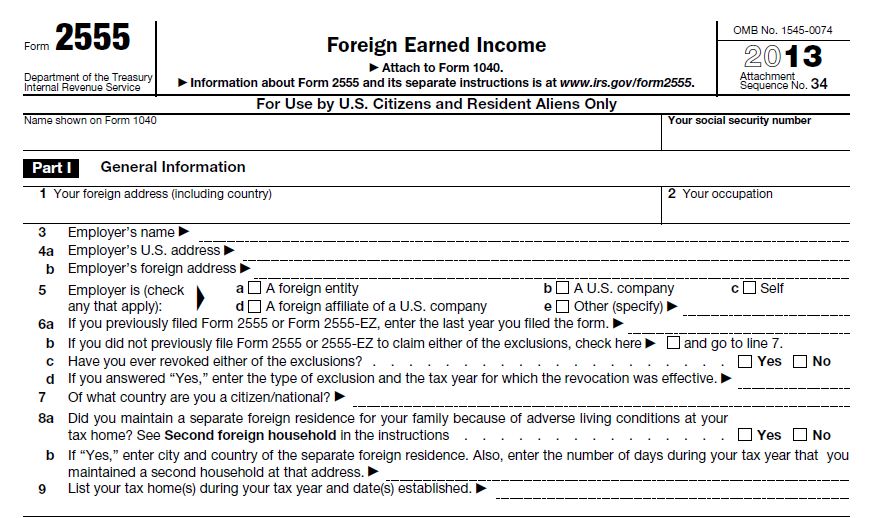Foreign Bank and Financial Accounts
 Foreign Bank and Financial Accounts
Foreign Bank and Financial Accounts
If you have a financial interest in or signature authority over a foreign financial account, including a bank account, brokerage account, mutual fund, trust, or other types of foreign financial accounts, exceeding certain thresholds, the Bank Secrecy Act may require you to report the account yearly to the Department of Treasury by electronically filing a Financial Crimes Enforcement Network (FinCEN) 114, Report of Foreign Bank and Financial Accounts (FBAR).
 Who Must File
Who Must File
United States persons are required to file an FBAR if:
1)The United States person had a financial interest in or signature authority over at least one financial account located outside of the United States, and
2)The aggregate value of all foreign financial accounts exceeded $10,000 at any time during the calendar year reported.
United States person includes U.S. citizens; U.S. residents; entities, including but not limited to, corporations, partnerships, or limited liability companies, created or organized in the United States or under the laws of the United States; and trusts or estates formed under the laws of the United States.
Exceptions to the Reporting Requirement
There are filing exceptions for the following United States persons or foreign financial accounts:
-
 Foreign financial accounts jointly owned by spouses if one spouse is authorized to file on the other’s behalf and timely reports the jointly owned accounts.
Foreign financial accounts jointly owned by spouses if one spouse is authorized to file on the other’s behalf and timely reports the jointly owned accounts. - United States persons included in a consolidated FBAR.
- Correspondent/Nostro accounts (maintained by banks and used solely for bank-to-bank settlements).
- Foreign financial accounts owned by a governmental entity.
- Foreign financial accounts owned by an international financial institution.
- Owners and beneficiaries of U.S. IRAs.
- Participants in and beneficiaries of tax-qualified retirement plans.
- Certain individuals with signature authority over, but no financial interest in, a foreign financial account.
- Trust beneficiaries (but only if a U.S. person reports the account on an FBAR filed on behalf of the trust).
- Foreign financial accounts maintained on a United States military banking facility.
 Reporting and Filing Information
Reporting and Filing Information
If you hold a foreign financial account, you may have a reporting obligation even when the account produces no taxable income. The reporting obligation is met by answering questions on a tax return about foreign accounts [(for example, the questions about foreign accounts on Schedule B (Form 1040)] and by filing an FBAR.
The FBAR is a calendar year report and is due April 15 of the year following the calendar year being reported with a 6-month extension available. FinCEN will grant filers fail- ing to meet the FBAR due date of April 15 an automatic ex- tension to October 15 each year. A specific extension request is not required.
The FBAR must be filed electronically through FinCEN’s BSA E-Filing System. The FBAR is not filed with a federal income tax return.
Foreign Bank and Financial Accounts
If you are required to file an FBAR and fail to properly file a complete and correct FBAR you may be subject to a civil penalty not to exceed $10,000 per violation for any non-willful violation that is not due to reasonable cause. For a willful violation, the penalty may be greater than $100,000 or 50% of the balance in the account at the time of the violation, for each violation. The IRS can waive the penalty for failure to timely file or any person required to file an FBAR for the first time.
Additional information about the FBAR can be found at:
 Delinquent FBAR Submission Procedures
Delinquent FBAR Submission Procedures
If you have not filed a required FBAR and are not under a civil examination or a criminal investigation by the IRS and have not already been contacted by the IRS about a delinquent FBAR, you should file any delinquent FBARs and include a statement explaining why the filing is late. Select a reason for filing late on the cover page of the electronic form or enter a customized explanation using the ‘Other’ option. If unable to file electronically you may contact FinCEN’s Regulatory Helpline at 800-949-2732 or 703-905-3975 (if calling from outside the United States) to determine acceptable alternatives to electronic filing.
The IRS will not impose a penalty for the failure to file the delinquent FBARs if income from the foreign financial ac- counts reported on the delinquent FBARs is properly re- ported and taxes are paid on your U.S. tax return, and you have not previously been contacted regarding an income tax examination or a request for delinquent returns for the years for which the delinquent FBARs are submitted.
 U.S. Taxpayers Holding Foreign Financial Assets May Also Need to File Form 8938
U.S. Taxpayers Holding Foreign Financial Assets May Also Need to File Form 8938
If you have specified foreign financial assets that exceed certain thresholds you must report those assets to the IRS on Form 8938, Statement of Specified Foreign Financial Assets, which is filed with an income tax return. Those foreign financial assets could include foreign accounts reported on an FBAR. The Form 8938 filing requirement is in addition to the FBAR filing requirement.
Form 8938 must be filed by specified individuals who include U.S. citizens, resident aliens, and certain nonresident aliens if reporting thresholds are met.
Specified individuals living in the U.S. must file if:
- Unmarried (or Married Filing Separately) with total foreign financial assets valued at more than $50,000 on the last day of the tax year, or more than $75,000 at any time during the year, or
- Married Filing Jointly with total foreign financial assets valued at more than $100,000 on the last day of the tax year, or more than $150,000 at any time during the year.
Specified individuals living outside the U.S. must file if:
- Unmarried (or Married Filing Separately) with total foreign financial assets valued at more than $200,000 on the last day of the tax year, or more than $300,000 at any time during the year, or
- Married Filing Jointly with total foreign financial assets valued at more than $400,000 on the last day of the tax year, or more than $600,000 at any time during the year.
This article contains general information for taxpayers and should not be relied upon as the only source of authority.
Taxpayers should seek professional tax advice for more information. Copyright © 2021 Tax Materials, Inc. All Rights Reserved
Proper reporting and filing can also help keep you off the IRS radar.
 Confidentiality
Confidentiality
As professional tax preparers, we are bound by rules of ethics to keep all of your information confidential. We take great care in handling your information, including names, addresses, birth dates, and Social Security Numbers, and items of income and deductions. We have safeguards in place to protect the security of your physical documents as well as the security of electronic information used to process and file your returns with the IRS and state revenue agencies.
We adhere to strict rules regarding any disclosure or use of your personal information. We will not disclose or use any of your personal information obtained during the tax engagement for purposes other than preparation and filing of your returns unless we obtain specific written authorization from you in advance.
Contact Us
There are many events that occur during the year that can affect your tax situation. Preparation of your tax return involves summarizing transactions and events that occurred during the prior year. In most situations, treatment is firmly established at the time the transaction occurs. However, negative tax effects can be avoided by proper planning. Please contact us in advance if you have questions about the tax effects of a transaction or event, including the following:
- Pension or IRA
- Retirement.
- A significant change in income or deductions
- Notice from IRS or other revenue departments.
- Job Change
- Divorce or separation.
- Self-employment.
- Attainment of age 59½ or 72.
- Charitable contributions of property in excess of $5,000
- Sale or purchase of a business
- Sale or purchase of a residence or other real estate
|
PHONE: 781.883.3174






